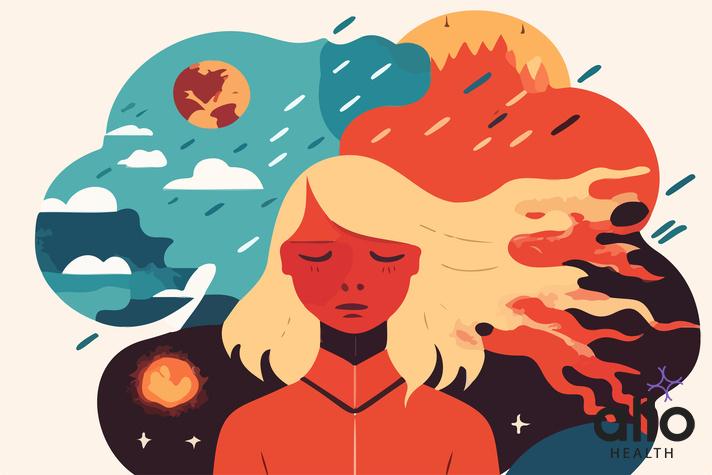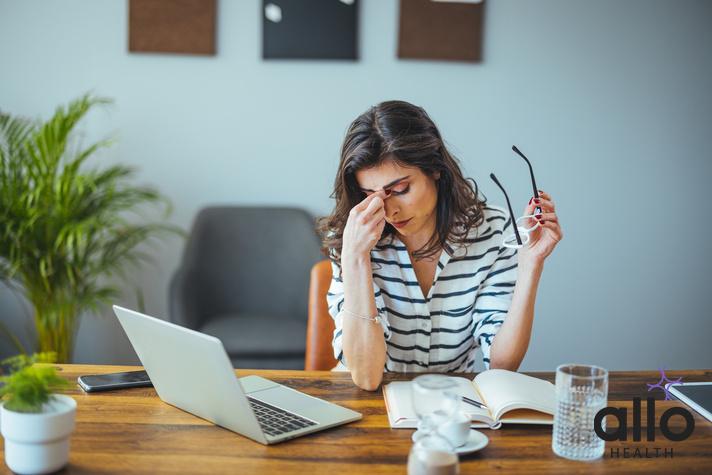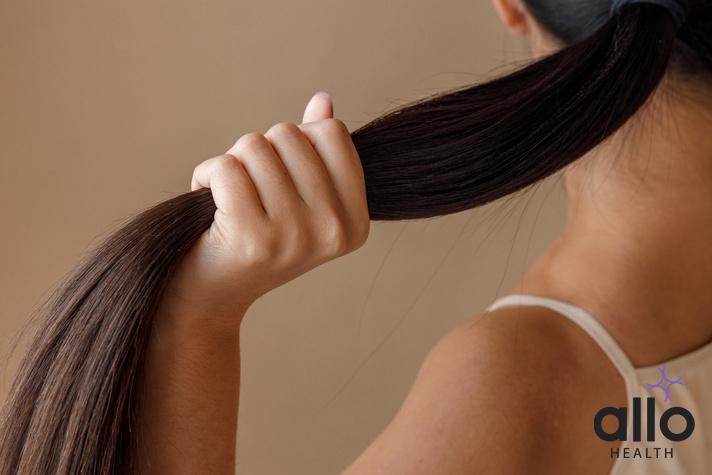Minoxidil And Its Relationship with Erectile Dysfunction

Allo Health is dedicated to personalized well-being, offering support and trusted information tailored to individual health goals. The platform emphasizes human-generated content, led by a distinguished medical team of experts, including physicians and sexual health specialists. Their commitment to credibility involves rigorous fact-checking, authoritative research, and continuous updates to ensure accurate, up-to-date information. Allo Health's unique approach goes beyond conventional platforms, providing expert-led insights and a continuous commitment to excellence, with user feedback playing a crucial role in shaping the platform's authoritative voice.

Dr. Raj. R holds an undergraduate medical degree from the Philippines, and has a bachelors background in Psychology. His experience working in the field of urology further brought his interest forward in working towards his passion of understanding the science of attraction, intimacy, sex and relationships. A key motto he practices by remains unprejudiced and non-judgemental care.
Why This Was Upated?
Our experts continually monitor the health and wellness space, and we update our articles when new information became available.
Updated on 14 April, 2024
- Article was updated as part of our commitment to diversity, equity, and inclusion.

"The following blog article provides general information and insights on various topics. However, it is important to note that the information presented is not intended as professional advice in any specific field or area. The content of this blog is for general educational and informational purposes only.
Book consultation
The content should not be interpreted as endorsement, recommendation, or guarantee of any product, service, or information mentioned. Readers are solely responsible for the decisions and actions they take based on the information provided in this blog. It is essential to exercise individual judgment, critical thinking, and personal responsibility when applying or implementing any information or suggestions discussed in the blog."
Embarking on a journey to lush hair and encountering unexpected hurdles? Topical Minoxidil Solution, a widely recognized medication for promoting hair growth, has long been a subject of interest and speculation regarding its potential association with erectile dysfunction, ED (a type of sexual dysfunction).
This article aims to delve into the existing research and shed light on the connection, if any, between minoxidil usage and the occurrence of ED. By exploring the available evidence, we seek to uncover the truth behind this mysterious correlation, providing valuable insights for those considering or currently using minoxidil as a hair restoration treatment. Here’s when to enlist the guidance of a healthcare professional to ensure your Minoxidil journey stays on the right track.
The Science of Minoxidil and Erectile Dysfunction
Minoxidil is a topical treatment medication that has been primarily used for its hair growth properties like preventing hair loss and hair thinning. It was originally developed as an oral medication for treating high blood pressure, but its side effect of promoting hair growth (healthy hair follicles) was soon discovered. Today, it is commonly available in topical form and is applied directly to the scalp to stimulate hair regrowth in individuals with androgenic alopecia, also known as male or female pattern baldness.
While the exact way minoxidil spurs hair growth isn’t completely clear, it’s believed to widen blood vessels, enhancing blood flow to hair follicles. It is believed to widen the blood vessels, which improves blood flow to the hair follicles. This enhanced blood circulation may supply essential nutrients and oxygen to the follicles, stimulating hair growth and prolonging the growth phase of the hair cycle.
Minoxidil is available over-the-counter and typically comes in strengths of 2% and 5%. It is important to note that results from minoxidil treatment can vary from person to person, and regrowth may not be observed in all individuals. Additionally, the use of minoxidil requires consistent application to maintain its effects, as discontinuing treatment can lead to the reversal of hair regrowth.
Minoxidil Overview
- Introduction:
- Delve into the ongoing debate surrounding Minoxidil and its potential association with erectile dysfunction (ED).
- Highlight the significance of Minoxidil as a popular cure for hair loss and its widespread use.
- Minoxidil:
- Briefly explain Minoxidil’s primary purpose as a vasodilator, promoting hair growth by improving blood flow to the scalp.
- Emphasize the topical application of Minoxidil in various hair loss products.
- Expert Opinions:
- Include insights from medical professionals and experts in the field regarding the debated connection between Minoxidil and ED.
- Explore differing viewpoints and opinions within the medical community.
- Patient Experiences:
- Incorporate real-life accounts of individuals who have reported experiencing erectile dysfunction while using Minoxidil.
- Provide a balanced perspective by considering the variety of individual responses and factors.
- Safety Precautions:
- Highlight the importance of consulting healthcare professionals before using Minoxidil, especially for individuals with pre-existing health conditions.
- Discuss any existing warnings or recommendations from health authorities.
- Future Research Directions:
- Stress the necessity for further research to determine the relationship between Minoxidil and erectile dysfunction conclusively.
- Sum up the current state of the debate, emphasizing the need for a nuanced understanding of the potential risks associated with Minoxidil.
- Encourage readers to stay informed, consult healthcare professionals, and make informed decisions regarding Minoxidil use.
As we navigate the intricate web of anxiety, stress, and the battle against hair loss, the role of Minoxidil emerges as a potential player. Let’s unravel the threads that tie these elements together.

The Role of Anxiety and Stress in Erectile Dysfunction and Minodixil
- Introduction:
- Anxiety and Stress in ED:
- Explores how psychological factors like anxiety and stress contribute to ED.
- Discusses the impact of cortisol and adrenaline on sexual function.
- Highlights the interconnected nature of mental health and sexual well-being.
- Understanding the impact of anxiety and stress on erectile function sets the stage for exploring how Minoxidil fits into this intricate puzzle.
- Minoxidil Overview:
- Brief introduction to minoxidil as a vasodilator commonly used for hair growth.
- Explains how minoxidil affects blood circulation and its potential implications.
- Mechanisms of Action:
- Describes how anxiety/stress and minoxidil may affect the vascular system.
- Explores potential overlaps in mechanisms contributing to ED.
- Considerations for Users:
- Advises individuals using minoxidil to be aware of potential side effects.
- Encourages open communication with healthcare providers about any observed changes in sexual health.
- Mitigation Strategies:
- Suggests lifestyle changes and stress management techniques for individuals experiencing ED.
- Recommends consulting healthcare professionals for personalized advice.
- Summarizes key findings on the interplay between anxiety, stress, minoxidil, and ED.
- Emphasizes the importance of holistic health considerations for those using minoxidil.
Minoxidil: Side Effects and Precautions

Common side effects of minoxidil may include:
- Scalp irritation: Itching, redness, or dryness on the scalp where the medication is applied (topical solutions).
- Unwanted hair growth: Minoxidil can sometimes cause excessive hair growth in areas other than the scalp, such as the face or body hair.
- Skin reactions: Some individuals may experience allergic reactions, such as skin irritation rash, or hives, when using minoxidil.
- Headache: In rare cases, minoxidil may cause headaches or migraines.
- Dizziness: Some individuals may experience dizziness or lightheadedness while using minoxidil.
- Chest pain or rapid heartbeat: Although uncommon, minoxidil may affect the cardiovascular system, leading to symptoms such as chest pain or a fast heart rate.
It is important to note that not everyone will experience these side effects, and they are generally mild and temporary. If any of these side effects persist or worsen, it is advisable to discontinue use and consult a healthcare professional. Also, it is always recommended to follow the instructions provided by healthcare professionals or on the product packaging when using minoxidil.
When to See a Doctor For Minoxidil And Erectile Dysfunction
- Introduction:
- Addressing concerns about Minoxidil and its potential impact on erectile function.
- Monitoring Side Effects:
- Regularly assess any changes in sexual health while using Minoxidil.
- Be vigilant for signs of erectile dysfunction (ED) during treatment.
- Consulting a Healthcare Professional:
- If experiencing persistent ED or related concerns, seek medical advice promptly.
- Consult a doctor to discuss symptoms, medical history, and potential links to Minoxidil use.
- Consideration of Other Factors:
- Rule out other factors contributing to ED, such as stress, lifestyle, or underlying health conditions.
- Collaborative Decision-Making:
- Work closely with the doctor to determine the best course of action.
- Explore alternative hair loss treatments or adjustments to Minoxidil usage if necessary.
- Timely consultation with a healthcare professional is crucial for addressing concerns about Minoxidil and erectile dysfunction.
Lifestyle Choices and ED Management
Discover the pivotal role lifestyle choices play in managing Erectile Dysfunction (ED). This brief explores the impact of exercise, diet, stress management, and sleep on sexual health. Learn practical tips for fostering a healthier lifestyle to enhance overall well-being and mitigate the effects of ED, promoting a fulfilling and satisfying intimate life.
In addition to considering Minoxidil, discuss lifestyle factors, stress levels, and overall health with your doctor. A holistic approach ensures a thorough evaluation of potential contributors to erectile concerns.
Psychological Counseling and ED
There is a profound impact of psychological counseling on Erectile Dysfunction (ED). This article delves into the crucial role of mental health in addressing and managing ED, highlighting therapeutic approaches that empower individuals to overcome psychological barriers and enhance overall sexual well-being. Unlock insights into the interconnected realms of emotional health and erectile function.
Medical Treatments for ED
- Oral Medications:
- Common options include Viagra (sildenafil), Cialis (tadalafil), and Levitra (vardenafil).
- Enhance blood flow to the penis, promoting erections when sexually stimulated.
- Injections:
- Intracavernosal injections involve self-administered medications like alprostadil.
- Directly relax penile muscles, facilitating increased blood flow and sustained erections.
- Penile Suppositories:
- Alprostadil suppositories inserted into the urethra can be an alternative to injections.
- Induces erections by promoting blood flow to the penis.
- Vacuum Erection Devices (VEDs):
- Non-invasive devices create a vacuum around the penis, drawing blood into the erectile tissues.
- A constriction ring is placed at the base to maintain the erection.
- Penile Implants:
- Surgical insertion of inflatable or malleable rods into the penis.
- Provides rigidity when desired, allowing for a more natural sexual experience (sex drive) with the sexual partner, and improving one’s sex life.
- Hormone Therapy:
- Testosterone replacement therapy (TRT) may benefit men with low testosterone levels.
- Improves the concerns of loss of libido and aids in achieving and maintaining erections.
- Lifestyle Changes:
- Adopting a healthy lifestyle with regular exercise, a balanced diet, and weight management.
- Managing stress and addressing psychological factors contributing to ED.
- Counseling and Psychotherapy:
- Addressing psychological causes through counseling or therapy.
- Can be beneficial in cases where stress, anxiety, or relationship concerns impact sexual performance.
- Platelet-Rich Plasma (PRP) Therapy:
- Experimental treatment involving the injection of platelet-rich plasma into the penis.
- Aimed at improving blood flow and tissue regeneration.
- Shockwave Therapy:
- Non-invasive treatment using low-intensity shockwaves to stimulate blood vessel growth.
- May enhance blood flow and improve erectile function over time.
Please always consult with a healthcare professional to find the best treatment based on individual health and circumstances.
Most Asked Questions
-
Can I stop using minoxidil if I experience erectile dysfunction?
If you're experiencing ED and suspect that minoxidil might be the cause, consult your healthcare provider. They can help determine if minoxidil is indeed the culprit and suggest alternative treatments if necessary.
-
Are there other treatments for hair loss that do not carry the risk of ED?
Yes, there are several other treatments and benefits for hair loss (which cause effective hair regrowth and combat hair loss), such as finasteride and low-level laser therapy. Your healthcare provider can help determine the best treatment option for you.
-
How can I manage erectile dysfunction?
There are several approaches to managing ED, ranging from lifestyle changes like regular exercise and a healthy diet to medication, psychological counseling, or even surgical options. The best approach depends on the underlying cause of ED and should be discussed with your healthcare provider.
-
Does everyone who uses minoxidil experience ED?
No, most people who use minoxidil do not experience ED. As stated before, there isn't substantial scientific evidence to prove a direct correlation between minoxidil usage and ED. Understanding the relationship between minoxidil and erectile dysfunction is a complex issue, with many variables at play. While there have been reports of ED associated with minoxidil use, it's essential to know that no definitive scientific link has been established. Furthermore, the impact of stress and anxiety related to hair loss can't be overlooked.






































